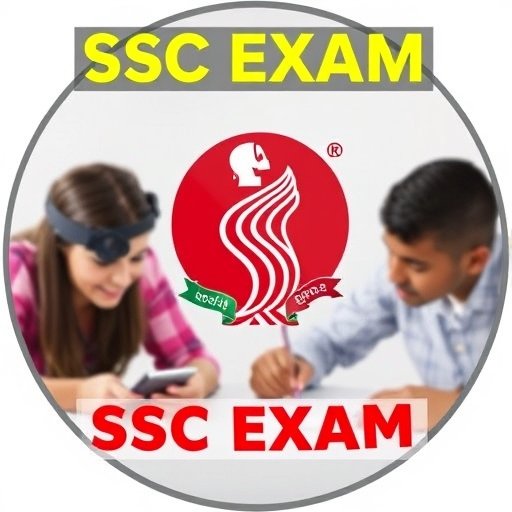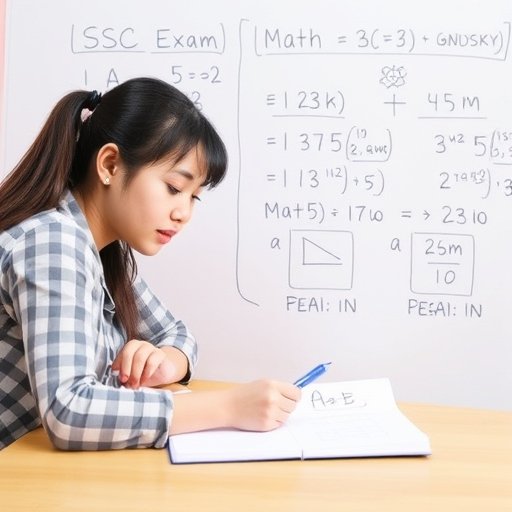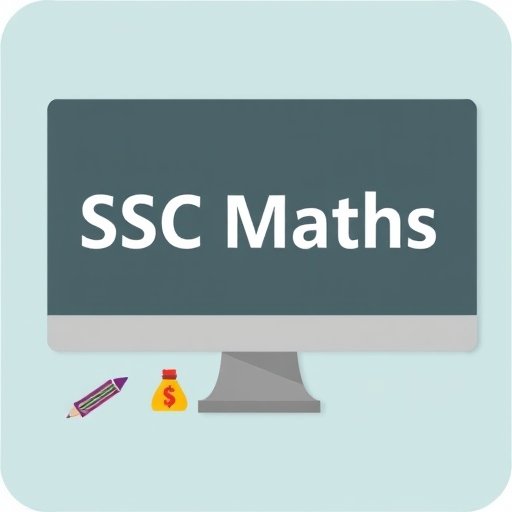Table of Contents
The SSC conducts the various SSC exam to recruit skilled candidates for key roles in various departments, offices, and organizations under the GoI.
The Staff Selection Commission (SSC) exams are among the most significant competitive exams in India. Conducted by the Staff Selection Commission, an organization under the Government of India, these exams aim to recruit candidates for various posts in government ministries, departments, and organizations. The exams are highly regarded due to their prestige, the opportunities they provide, and the impact they have on the careers of millions of aspirants.
Whether you are preparing for the SSC CGL (Combined Graduate Level) exam, SSC CHSL (Combined Higher Secondary Level), SSC MTS (Multi-Tasking Staff), or any other exam under SSC, it is crucial to understand the structure, eligibility, preparation tips, and scope of these exams.

Types of SSC Exams
The Staff Selection Commission conducts various exams for different levels of education and job categories. Some of the key SSC exams include:
- SSC CGL (Combined Graduate Level):
The SSC CGL exam is one of the most prestigious exams for graduates. It is held to recruit candidates for Group B and Group C posts in ministries, departments, and organizations of the Government of India. These include posts like Assistant, Inspector, and various other administrative roles. - SSC CHSL (Combined Higher Secondary Level):
The SSC CHSL exam is for candidates who have completed their 12th standard. It offers positions such as Lower Division Clerk (LDC), Data Entry Operator (DEO), Postal Assistant, and Sorting Assistant. - SSC MTS (Multi-Tasking Staff):
The SSC MTS exam is for candidates applying for multi-tasking staff posts in various government departments. These roles often involve office support tasks like assisting in clerical work, handling data entry, and other administrative functions. - SSC GD Constable:
This exam is for the recruitment of constables in the General Duty police force. The positions are available in the Border Security Force (BSF), Central Reserve Police Force (CRPF), Central Industrial Security Force (CISF), and other paramilitary forces. - SSC JE (Junior Engineer):
The SSC JE exam is for the recruitment of Junior Engineers in civil, mechanical, electrical, and other technical departments of the Indian government. - SSC Stenographer:
The SSC Stenographer exam is for those who wish to become stenographers in various government ministries and departments.
SSC Exam Eligibility
Eligibility criteria vary depending on the specific SSC exam, but the basic requirements include:
- Age Limit:
The age limit typically ranges from 18 to 27 years for most SSC exams, although some exams may have slightly different age criteria. Relaxations in age are provided for candidates belonging to certain reserved categories, such as SC/ST, OBC, and persons with disabilities. - Educational Qualifications:
- For SSC CGL, a bachelor’s degree in any discipline from a recognized university is required.
- For SSC CHSL, candidates must have completed their 12th standard (or equivalent) from a recognized board.
- For SSC MTS, candidates must have passed the 10th grade (Secondary School Examination).
- For SSC JE, a diploma or degree in engineering in the relevant field is typically required.
- Nationality:
Candidates must be Indian citizens, though there are exceptions for certain categories (like candidates from Nepal or Bhutan, etc.).
Exam Pattern and Syllabus

The exam pattern for SSC exams is usually divided into multiple stages. However, the general structure is as follows:
- Written Examination:
The first stage of most SSC exams is a written examination consisting of multiple-choice questions (MCQs). The questions typically cover:- General Intelligence and Reasoning
- General Awareness
- Quantitative Aptitude
- English Comprehension
- Descriptive Test (Optional):
For some exams like SSC CGL, after clearing the Tier-I exam, candidates are required to take a Tier-II exam, which may include a descriptive paper, particularly in English or Hindi. - Skill Test/Interview:
Certain posts, such as those for stenographers or data entry operators, require candidates to clear a skill test. Additionally, some exams may have a final interview round, especially for higher-level posts. - Document Verification:
After the written exam and skill tests, candidates go through document verification to confirm their eligibility and qualifications.
SSC CGL Tier 1 Exam Pattern 2024
SSC CGL Tier-1 Exam will be conducted online comprising 4 sections with 100 multiple choice questions (MCQs) in total and with maximum marks of 200. The entire exam is needed to be completed in a time span of 60 minutes. SSC CGL Tier 1 Exam will be of a qualifying nature and marks will not be counted in the final selection.
The questions asked in the SSC CGL Tier 1 Exam 2024 are from the following sections:
- General Intelligence & Reasoning
- General Awareness
- Quantitative Aptitude
- English Comprehension
| SSC CGL Tier 1 Exam Pattern 2024 | ||||
| S.No. | Sections | No. of Questions | Total Marks | Time Allotted |
| 1 | General Intelligence and Reasoning | 25 | 50 | A cumulative time of 60 minutes |
| 2 | General Awareness | 25 | 50 | |
| 3 | Quantitative Aptitude | 25 | 50 | |
| 4 | English Comprehension | 25 | 50 | |
| Total | 100 | 200 | ||
Negative marking of 0.50 marks for each wrong answer.
SSC CGL Tier 2 Exam Pattern 2024
The SSC CGL Tier 2 Exam 2024 will be conducted in 2 phases- Paper 1 and Paper 2. Paper I (Compulsory for all posts), Paper II for candidates who apply for the posts of Junior Statistical Officer (JSO) and Statistical Investigator Gr. II.
| SSC CGL Tier 2 Exam Pattern 2024 | ||
| S.No. | Papers | Time Allotted |
| 1 | Paper I: (Compulsory for all posts) | 2 hours 30 minutes |
| 2 | Paper II: Junior Statistical Officer (JSO) and Statistical Investigator Gr. II | 2 hours |
The detailed SSC CGL Exam Pattern 2024 for Tier 2 Exam has been discussed below along with the changes made by SSC this year.
| SSC CGL Tier 2 Exam Pattern 2024 [Paper 1] | |||||||
| Sessions | Sections | Modules | Subject | No. of Questions | Marks | Weightage | Duration |
| Session I | Section I | Module-I | Mathematical Abilities | 30 | 90 | 23% | 1 hour |
| Module-II | Reasoning and General Intelligence | 30 | 90 | 23% | |||
| Section II | Module-I | English Language and Comprehension | 45 | 135 | 35% | 1 hour | |
| Module-II | General Awareness | 25 | 75 | 19% | |||
| Section III | Module-I | Computer Knowledge Test | 20 | 60 | Qualifying | 15 minutes | |
| Session II | Module-II | Data Entry Speed Test | One Data Entry Task | Qualifying | 15 minutes | ||
| SSC CGL Tier 2 Exam Pattern 2024 [Paper 2] | ||||
| Papers | Sections | No. of question | Maximum Marks | Duration |
| Paper II | Statistics | 100 | 200 | 2 hours |
Negative marking
- 1 mark for each wrong answer in Section-I, Section-II and Module-I of Section-III of Paper-I
- 0.50 marks for each wrong answer in Paper-II
SSC Exam Preparation Tips
- Understand the Syllabus:
The first step towards effective preparation is understanding the detailed syllabus for the exam you are appearing for. Ensure you know what topics to focus on and create a study plan accordingly. - Time Management:
Time management is key. Prepare a timetable that allocates enough time for each section of the syllabus. It’s essential to practice solving problems under timed conditions. - Regular Practice:
Practice as many mock tests, previous year question papers, and sample papers as possible. This helps you understand the pattern, types of questions, and improves your speed and accuracy. - Focus on Weak Areas:
Identify the topics where you are weak and spend extra time on them. Don’t ignore any section, even if it seems tough. - Stay Updated:
Stay informed about current affairs and general knowledge. Reading newspapers, magazines, and online resources can help you stay ahead. - Use Study Materials:
Use quality study materials like books, online courses, or coaching classes to get a solid grasp of the concepts. - Revision:
Regular revision is essential to retain what you’ve learned and to clear your concepts. Set aside time each week to revise the material you’ve already covered.
Benefits of Cracking SSC Exams

- Job Security:
Government jobs provide stability and job security, unlike private sector jobs, which may be subject to layoffs. - Attractive Pay and Perks:
SSC jobs come with competitive salaries, allowances, and other benefits such as pension, medical facilities, housing, and more. - Career Growth:
Many government departments offer great opportunities for career advancement. With hard work and dedication, you can climb up the ranks and achieve higher positions. - Work-Life Balance:
Most SSC jobs offer a balanced work schedule with weekends off, which is appealing to many candidates seeking a peaceful life. - Prestige:
Government jobs are highly regarded in society, and they offer a sense of pride and respect.
Conclusion
The SSC exams are an excellent opportunity for candidates aspiring to work in the government sector. While the competition is tough, with the right preparation, focus, and dedication, you can successfully crack the exams and build a rewarding career. Whether you’re aiming for the SSC CGL, SSC CHSL, or any other exam, staying consistent in your efforts and managing time effectively are crucial to success.
So, if you’re looking to secure a stable and prestigious position in the Indian government, the SSC exams are an ideal route to consider. Best of luck with your preparation!
for More info, visit official website :
click here


